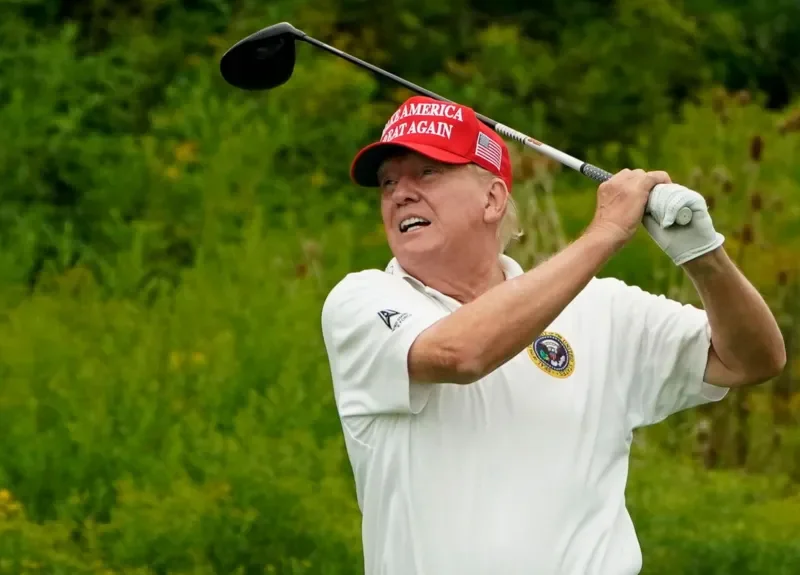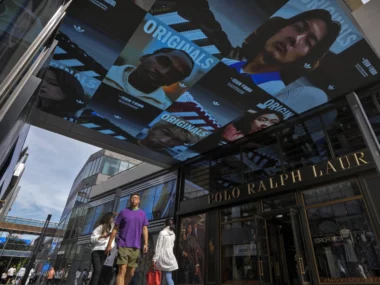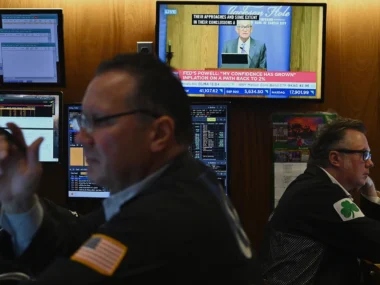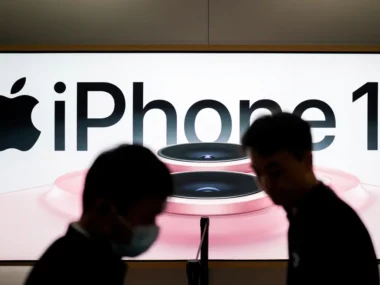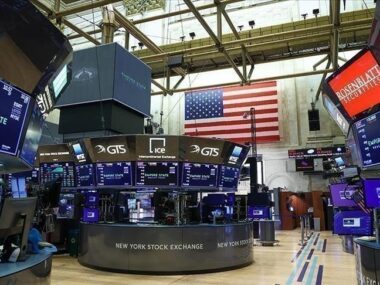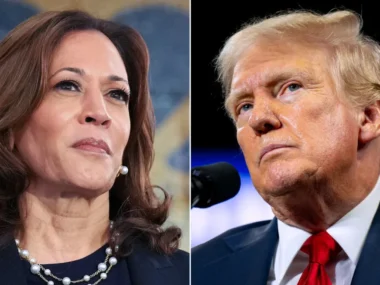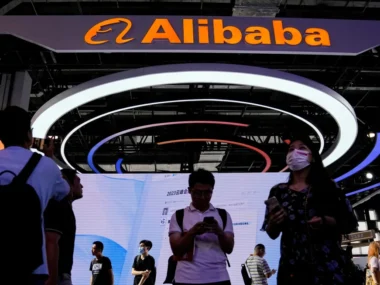Countries worldwide are preparing for Donald Trump’s so-called “Liberation Day in America!!!” next week.
The U.S. president’s deadline for imposing reciprocal tariffs on trading partners comes just days after he introduced 25% import taxes on foreign carmakers.
Vietnam may be especially vulnerable to Trump’s latest round of tariffs. It has a significant trade deficit with the U.S. and has benefited from companies relocating their factories from China to avoid measures announced during his first term.
While some nations have retaliated against Washington, Vietnam’s Prime Minister, Pham Minh Chinh, has hinted at a more diplomatic approach.
In January, he expressed willingness to visit Trump’s Mar-a-Lago residence in Florida and “golf all day long” if it would benefit his country, causing laughter in the room.
This idea might not be far-fetched. According to Reuters, the Trump Organization plans to invest billions in golf courses, hotels, and real estate in Vietnam.
The first project will reportedly feature a residential complex with three 18-hole golf courses, slated to begin construction in May.
The BBC has reached out to both the company and its Vietnamese partner for comment.
But could golf diplomacy truly be effective?
‘Bamboo’ economics
Trump has previously criticized Vietnam, calling it “worse than China” and “almost the single worst abuser of anybody.”
However, he has yet to specifically target Vietnam with tariffs, despite it having the third-largest trade deficit with the U.S., behind China and Mexico.
Analysts note that while Vietnam is successfully engaging with Washington, its efforts might still fall short of avoiding most of Trump’s tariff plans.
“Vietnam’s Prime Minister seems to be taking a page from former Japanese Prime Minister Shinzo Abe, who built a strong personal relationship with Trump through their shared love of golf,” said Stephen Olson, a former U.S. trade negotiator.
“However, I wouldn’t expect Vietnam to receive any special treatment from a policy perspective. Personal relationships matter to Trump, but his desire to appear tough on trade will likely prevail,” Olson added.
Vietnam has stated it doesn’t intend to “restrict trade” with the U.S., though it currently taxes some imports. The government announced this week that it will allow SpaceX, owned by Trump ally Elon Musk, to operate its Starlink satellite service in the country on a trial basis.
Some analysts view this as a strategic move by Vietnam to avoid U.S. tariffs.
Hanoi has also stated it will reduce tariffs on several U.S. imports, including energy and cars, aiming to “improve trade balances.” This came less than two weeks after Vietnamese and U.S. companies signed over $4bn in deals across various sectors, including oil and gas exploration.
Steve Norris from Control Risks said, “Vietnam is being careful not to take any actions that could signal non-cooperation on trade issues.”
This approach aligns with Vietnam’s foreign policy, referred to as “bamboo diplomacy.” Much like bamboo shoots that bend with the wind, Vietnam aims to remain adaptable to foreign pressures.
“If the U.S. increases pressure on Vietnam, the government might offer incentives to attract investment in hospitality and casino sectors, purchase advanced machinery, or even consider access to Vietnam’s rare earth minerals,” Norris noted.
What about China?
A major challenge for Vietnam is concerns over China’s influence.
During Trump’s first term, Vietnam was one of the largest beneficiaries of U.S.-China tensions.
In 2018, Trump imposed tariffs on China, prompting some businesses to reconsider where they produced goods. Many opted to relocate manufacturing to Vietnam.
As a result, Vietnam’s exports to the U.S. increased, with Chinese companies that moved production there contributing significantly to that growth.

Vietnam benefited from U.S.-China tensions during Trump’s first term in office.
Former U.S. trade negotiator Wendy Cutler stated that Vietnam has become a “destination for major Chinese investment.”
While the U.S. remains Vietnam’s largest export market, China is its largest goods supplier, accounting for over a third of its imports, according to the latest official data.
Chinese companies were also responsible for nearly one-third of new investments in Vietnam last year.
“These are major red flags for Trump. I expect Vietnam will eventually be hit hard by tariffs,” said Stephen Olson.
However, imposing tariffs on Vietnam could also negatively affect U.S. companies like tech giants Apple and Intel, and sportswear leader Nike, all of which have moved production from China to Vietnam.

Trump and former Japanese Prime Minister Shinzo Abe shared a mutual love of golf.
A recent survey by the American Chamber of Commerce in Vietnam revealed that most U.S. manufacturers there anticipate layoffs if tariffs are imposed.
The U.S. president believes these levies will strengthen the U.S. economy by encouraging more businesses to produce goods domestically and generate billions in tax revenue.
However, many economists caution that the tariffs could lead to higher prices for American consumers and harm global trade.
What happens next?
Washington is also worried about “trans-shipments”—Chinese goods passing through Vietnam on their way to other countries.
U.S. officials have been “quietly urging Vietnam to reduce its trade surplus over time and address the trans-shipment of Chinese goods through the country,” said Mr. Norris.
Vietnam’s prime minister has expressed confidence that his administration can “manage the relationship with the U.S.”
With Vietnam now lowering some tariffs on U.S. goods, they may become more appealing to Vietnamese consumers, increasing America’s share of trade with the country.
Then there’s golf—Trump’s golf games with the late Japanese leader Shinzo Abe proved effective.
Abe and Trump built a friendship through many golf sessions over the years, which helped Abe secure tariff exemptions for Japan’s crucial car industry.
For now, it remains uncertain whether Vietnam will use golf diplomacy.
The real challenge will come next week, when Trump’s new taxes are set to take effect.

